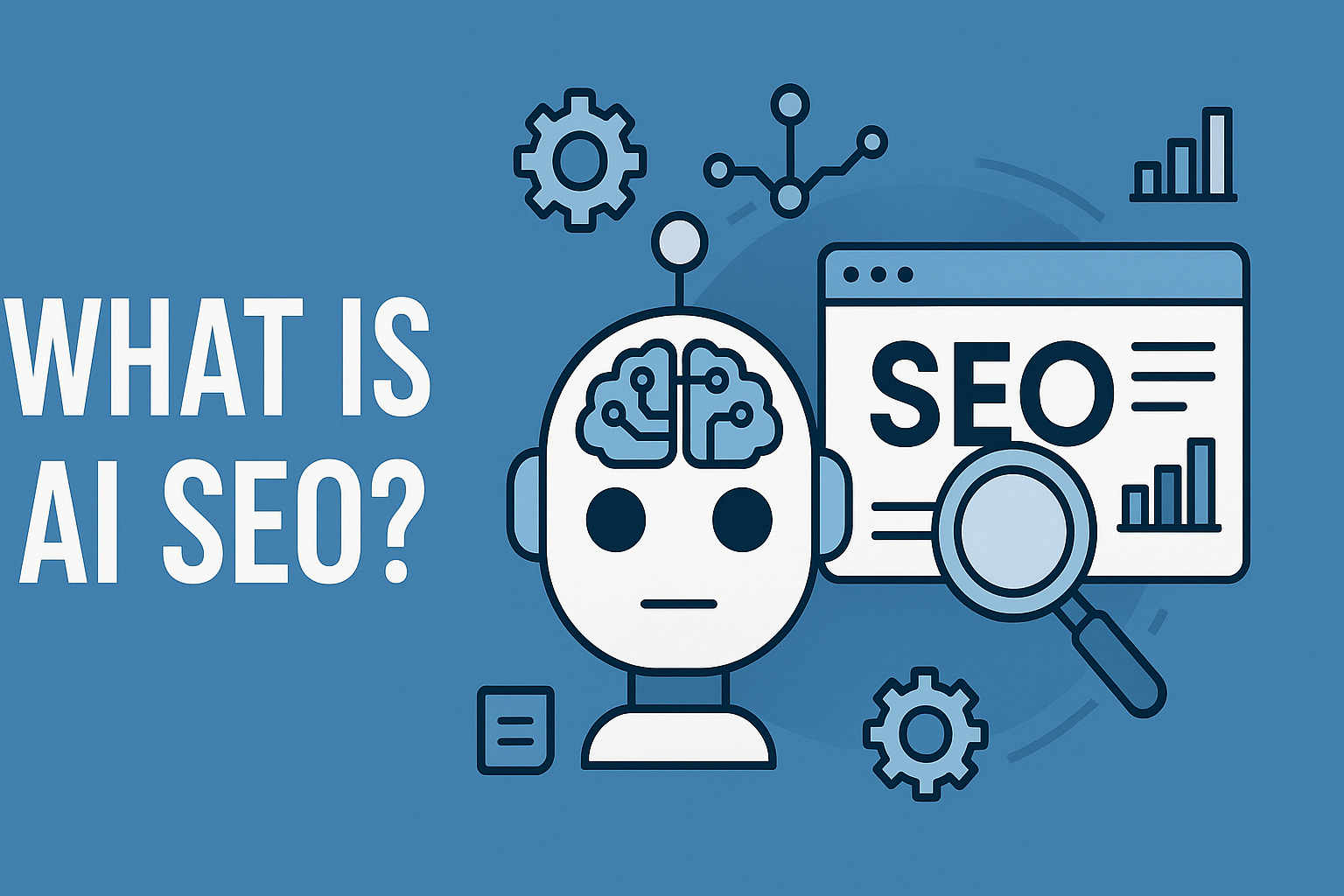AI SEO is the use of artificial intelligence to improve how websites rank on search engines like Google. It helps automate, speed up, and enhance key SEO tasks such as keyword research, content creation, on-page optimisation, and technical audits. Unlike traditional SEO, which relies on manual effort and guesswork, AI SEO uses algorithms that can process huge amounts of data, understand patterns, and make smarter decisions based on what actually works in search.
It’s not about replacing humans. It’s about amplifying human SEO strategies with machine efficiency and intelligence.
Why AI is Changing SEO
Search engines have become more advanced. Google now uses AI in its ranking systems, such as RankBrain and BERT, which understand meaning, context, and user intent. AI SEO mirrors this shift by helping websites speak the same language as the search engine.
Where older SEO focused on keywords and backlinks, AI SEO focuses on user behaviour, content depth, relevance, and semantic meaning. It helps marketers adapt in real time and build content that connects better with both users and algorithms.
Core Functions of AI SEO
1. Smarter Keyword Research
AI tools go beyond basic search volume. They find long-tail phrases, semantic keywords, and related questions based on what people are really searching for. These tools often cluster keywords by intent, making it easier to create relevant content that matches what users expect to find.
2. Content Optimisation
AI doesn’t just generate content. It audits and improves it. Platforms like Surfer, Clearscope, and MarketMuse scan top-ranking pages and show you what entities, topics, and structure your content needs to compete. This includes ideal word count, heading usage, and keyword placement without keyword stuffing.
3. Predictive Ranking Insights
Some AI SEO tools forecast how well your content is likely to rank. They use past SERP data, backlink profiles, authority scores, and even user engagement metrics to give a realistic ranking potential. This lets you prioritise content that can actually move the needle.
4. Technical SEO Auditing
AI can scan your website for crawlability, site speed, mobile usability, schema markup, broken links, and more. But it goes further than a basic report. AI ranks issues by priority and can even suggest fixes based on what similar successful websites have implemented.
5. SERP Intent Mapping
AI understands not just the keyword, but the why behind the search. It categorises SERP results into types like informational, commercial, navigational, or transactional. This helps you know what kind of content to build. For example, don’t write a blog post when the top results are product pages.
6. Content Generation at Scale
Tools like Jasper, Koala, and ChatGPT can now create long-form content based on detailed outlines. They write introductions, FAQs, summaries, and full posts tailored to your topic. The best results come when a human strategist guides the AI, edits the output, and ensures it aligns with brand voice.
7. SEO Automation
You can set up AI workflows to monitor keyword rankings, track competitors, refresh old content, or generate schema. This reduces the need for repetitive manual work and keeps your site aligned with evolving algorithm standards.
Benefits of Using AI for SEO
- Speed: Tasks that used to take hours now take minutes.
- Scale: You can create and optimise content across hundreds of pages.
- Precision: AI catches trends and opportunities you might miss.
- Cost efficiency: Reduces the need for large SEO teams or expensive agencies.
- Competitive edge: AI adapts fast, keeping you ahead of slower competitors.
Risks and Limitations
AI SEO is powerful, but it’s not perfect. It doesn’t fully replace human creativity, brand strategy, or ethical judgment. Relying on AI-generated content without reviewing it can lead to bland writing, factual errors, or SEO penalties.
Also, not all AI tools are equal. Some platforms exaggerate what they can do. Others are trained on outdated models. You need to vet tools carefully and integrate them into a clear strategy.
Real-World Use Cases
- Ecommerce: AI writes product descriptions, generates metadata, and clusters similar keywords for category pages.
- Bloggers: AI outlines and drafts blog posts based on real-time SERP analysis.
- Agencies: AI tools manage dozens of client sites with automated audits, reporting, and optimisation recommendations.
- Startups: AI helps small teams compete with bigger brands through smarter content targeting and faster output.
How to Get Started with AI SEO
- Choose your tools: Popular platforms include Surfer SEO, Jasper, MarketMuse, Clearscope, Frase, and ChatGPT.
- Map your goals: Are you focused on traffic, rankings, or conversions? Use AI to support that goal, not distract from it.
- Start small: Use AI for research, outline generation, or optimisation before scaling to full automation.
- Stay in control: Review all content, measure performance, and use AI as a partner—not a replacement.
Final Takeaway
AI SEO is not the future. It’s already here. If you want to compete in modern search, it’s no longer enough to rely on outdated tactics. AI allows you to move faster, adapt quicker, and rank smarter. When used well, it enhances human strategy, saves time, and drives real results.
Whether you run a personal blog or an enterprise site, learning how to leverage AI for SEO gives you an edge that grows stronger over time.

